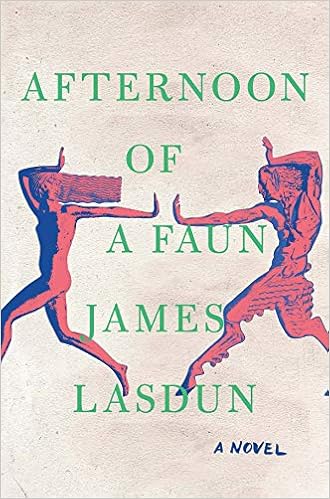Afternoon of a Faun
Afternoon of a Faun, book review
By James Lasdun
W.W. Norton & Company, 2019
The copyright says it all. It’s complicated. These times.
Making it even more difficult to unpack a complicated story.
More like meta fiction, which ends with the assumed election of Hillary Clinton
over her Republican opponent Donald Trump. The last scene in the novel is a
living room gathering of friends watching the last debate together with cheers:
“He’s going down!”
Who is HE, who are WE? The universe keeps expanding in a
wave of self-incrimination. What part do we play, have played in the sequence
of events leading up to now? I’m of course thinking of . . . children in cages,
anti-Semitic attacks, the depths of despair raging over society, people
thinking it’s okay to vandalize the Maggie Daley Cancer Survivor Wall, violence
against women. Social media hate. The toxic mix making up the news of just
this morning.
All of us contribute. You can read the culpability in Afternoon of a Faun. In this
multi-layered novel we are reeled in by different facets of
loyalty/identity/privilege. We sympathize with the abuser and the abused, with
the victor and the loser. From a place of self-assured confidence that of
course what seems rational, sensible will win out. That when it comes to
justice there is a level playing field, a point we can all agree on.
Wait: is that the sound of the world blowing up?
In December 2017 The
New Yorker published “Cat Person” by Kristen Roupenian that waded into
murky territory. It went viral. Pretty much exactly down the middle—if you were
a male you thought the female in the story led the guy on, wasn’t being honest,
some said she was a tease. While most women who read the story understood
exactly. It’s complicated.
Which probably explains why nobody
is having sex these days. (Millennials in particular—are having “so little
sex,” senior editor Kate Julian soberly framed the drop as a “sex recession.”)
Which doesn’t mean that we’re over “rape culture,” it’s just that both men and
women are having a hard time voicing what they really want.
Basically, no one wants to be a tool. We’re not talking
romance, a Disney ending, happily ever after. Just where no one feels taken
advantage of or hurt.
Afternoon of a Faun
is about a journalist who about 40 years prior had sex with a woman. They were
both mutually attracted to each other. It’s just that she asked him to stop and
he didn’t. That says rape. Except that they remained close, for a while. In
fact, after the incident, she stayed in bed next to him and left the next
morning. So was it?
Now she’s writing a memoir and revives the memory. The
narrator of the story is in the confidence of both parties involved and hears
about it from both sides, casting him as somewhat their judge. On one hand he
feels for Marco who can barely remember the moment, is successful, leading a
full life—this accusation coming now would ruin his reputation. He believes it
isn’t who he is. The woman, Julia, was at the top of her game in the 70s as a
sought-after news journalist. After what happened her career faded. She’d had
some unexpected turns, issues with her health (mental and physical),
relationship problems—to the point of actually cutting some people off, and was
now trying to resolve things the only way she knew how: by writing. Marco
definitely has the upper hand. He has power and privilege and fights her by having
lawyers cease and desist, trying to silence her. This is about who deserves to
be heard.
As readers/observers we can feel on the hook. By choosing
who to believe we stake political claim, personal identity, philosophical
leanings. Can we be truly liberal and yet empathize with Marco? Even though
Julia’s story/her behavior doesn’t make sense (How do we characterize a
victim??) is she still believable? And, against the backdrop of this drama
American history is playing out the Trump campaign/election. And when you're a star, they let you do it.
You can do anything. ...
Afternoon of a Faun
like its namesake ballet("Afternoon of THE Faun"), adapted from the poem by Mallarmé is about the limits
of desire, the yin and yang of intimacy. We do not know how this story is going
to end.

Comments